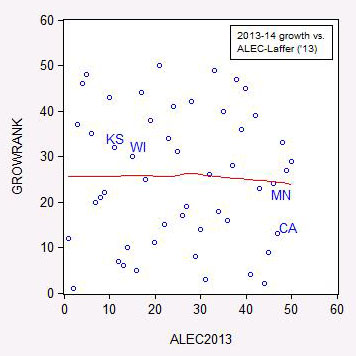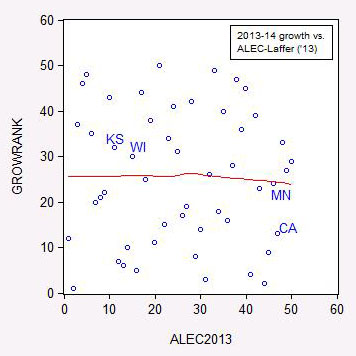
Michael Hiltzik draws my attention to something I missed when it first appeared a few weeks ago. Menzie Chinn decided to check out whether conservative pro-growth policies actually led to high growth, and  the chart on the right shows the results. Chinn compared scores on the ALEC-Laffer “Economic Outlook” ranking to actual growth in 2013-14 and looked for a trend. There wasn’t one. “If there is any evidence,” he concludes after a more detailed look at the data, “it suggests that a higher ALEC-Laffer Economic Outlook score is associated with a worse economic performance.”
the chart on the right shows the results. Chinn compared scores on the ALEC-Laffer “Economic Outlook” ranking to actual growth in 2013-14 and looked for a trend. There wasn’t one. “If there is any evidence,” he concludes after a more detailed look at the data, “it suggests that a higher ALEC-Laffer Economic Outlook score is associated with a worse economic performance.”
However, although a high ALEC-Laffer ranking may not stimulate any actual growth, Hiltzik points out that it does correspond to reduced taxes on the wealthy and slashed spending on state services that benefit the poor and working class. In other words, it may not affect growth, but it sure is a good deal for the rich. And that’s what counts, isn’t it?















